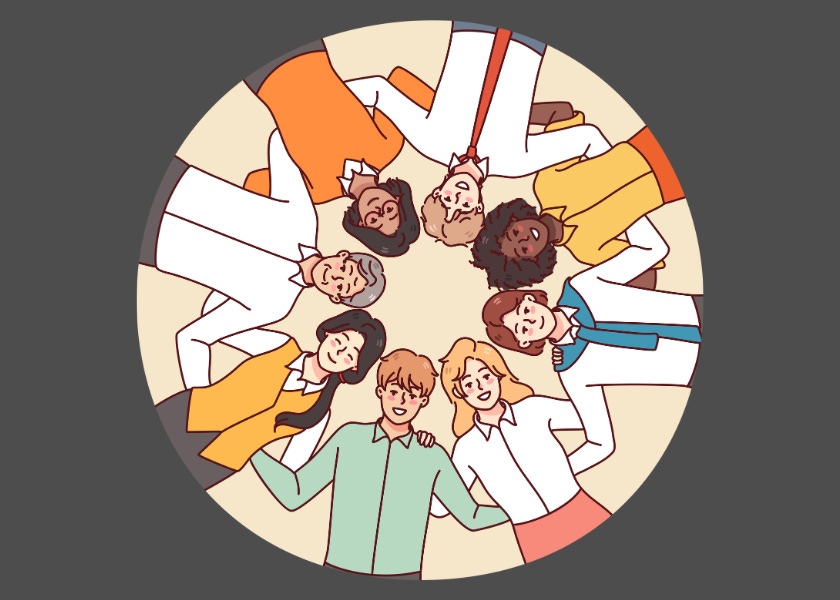The Art Of Tuned Facilitation
Great facilitation relies on making many, deliberate choices.
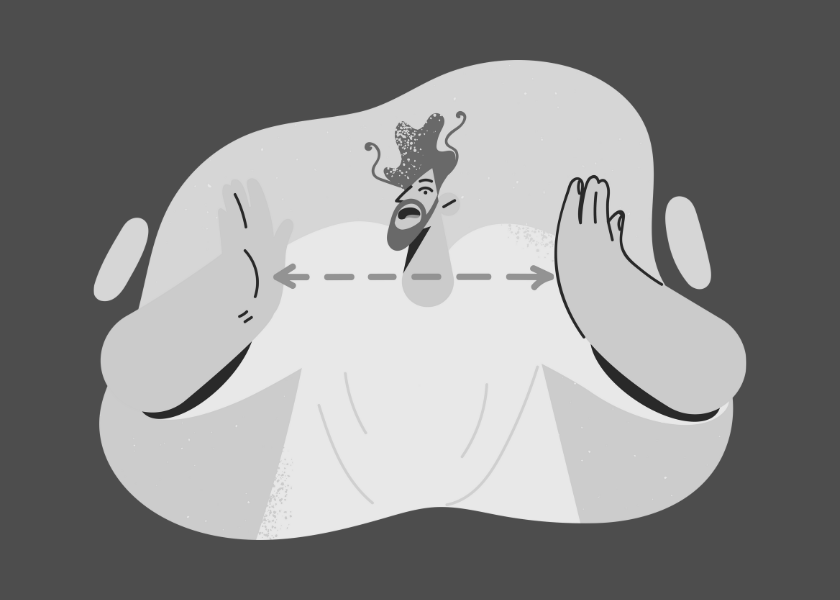
Tuning In
Think about a group of people having a heated debate. What do they need right now?
Though the question is simple, facilitators know that the answer is highly contingent. Some solutions will be simple: "they need a 10 minute break - they're just irritable because they're tired and thirsty". Some solutions will be complex: "there is no clarity in the room about how they're supposed to reach this decision - let's step back and think about that".
Whenever a facilitator is deciding where and how to intervene, they're figuratively looking at rows of buttons and dials. They're assessing which of these controls to 'turn' or 'press' in order to maximize the likelihood of a group having the best version of its conversation.
Let's consider 4 classic, prominent dials that facilitators must keep in mind, turning them up or down as needed...
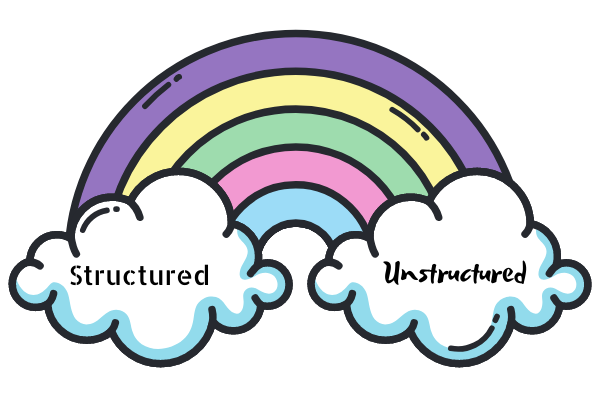
Structured v. Unstructured
A core part of facilitation involves designing a process and guiding the group through that process.
When time is at a premium and/or the meeting is expensive (lots of busy people) facilitators will tend to design a process that needs to be more rigidly adhered to - exact timings, precise sticky note processes etc. Such rigor can be essential in ensuring that the group stays focused on its goals. The tradeoff is that groups tend to find fewer opportunities to be creative / find unexpected solutions when they're running strictly on the rails. Experienced facilitators know when to suspend the plan in order to help the group make progress.
When there is more time and mental space available, a looser approach can be adopted. For example, facilitators may frame an entire morning as ideation time, asking the group a prompt-question to see where it goes. At this end of the spectrum, it is easy to drift away completely from the goals of the gathering. Free ranging discussion also tends to favor the louder voices in the room. Capable facilitators will know when to inject a little unplanned structure, to get things back on track.
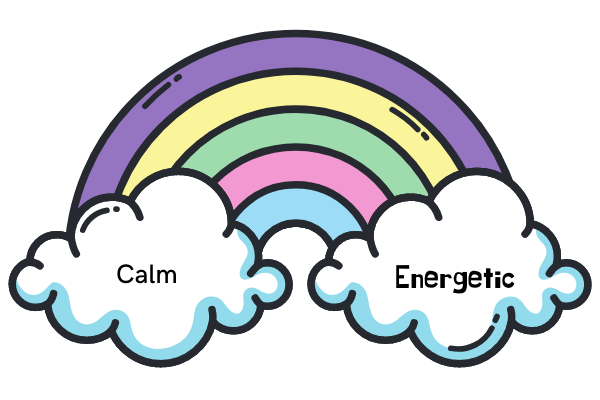
Calm v. Energetic
In facilitator circles, there is usually a fair amount of discussion on the topic of energy. As facilitators, it is our job to bring and manage energy. What this means in practice (since we are not sorcerers 🧙♂️) is that we have to project a sense of positivity, creativity, openness and joy. And in reality, if a facilitator enjoys what they do, this won't be hard.
As to managing the energy of the room, the key here lies in noticing the level of engagement of the participants. Are people starting to lose focus? Do they seem tired or disinterested? The challenge is then to figure out whether they need a rest-break or whether the process you've chosen is not working for them (or both).
At the other end of the energy spectrum, silence (when deployed with care) can be a very powerful way to focus a conversation or land an idea. A respectful silence can be calming in situations where there is too much heat in the conversation. A thoughtful silence can give participants much-needed processing time. There is even a place for an uncomfortable silence that forces participants to confront their own thinking honestly before speaking.
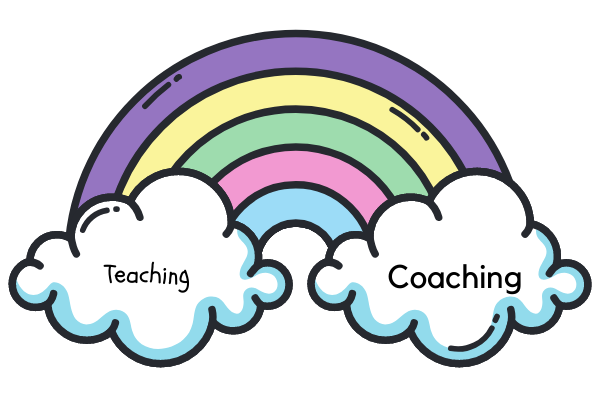
Teaching v. Coaching
The spectrum from teaching to coaching is an interesting one.
Teaching happens when a facilitator has relevant information or guidance to share with the group. It should generally be used sparingly (if at all) when playing the role of facilitator. When being taught, the group is placed in a lower state of participation and engagement can fall off rapidly.
Teaching can also mean directing and/or influencing. A facilitator's role is to guide the process and occasionally steer the conversation. The facilitator should be deft at avoiding being the center of the conversation. Thus teaching is a justifiable approach when taken judiciously in situations where the group's forward progress is blocked by the lack of a fact / piece of knowledge.
On the other hand, a coaching stance gives the group a higher amount of agency, a greater sense of ownership and an active sense of participation. With this stance, the facilitator will spend their time asking powerful, framing questions that help move the conversation along.
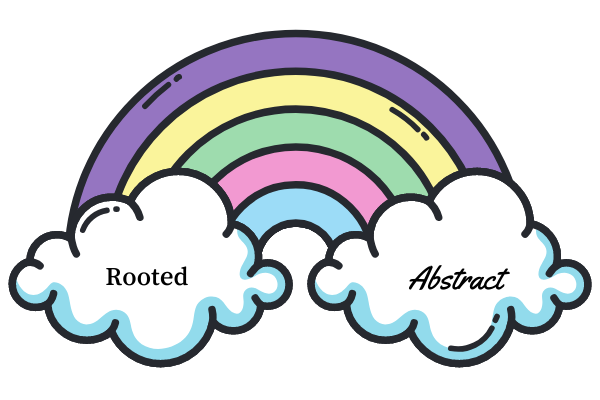
Rooted v. Abstract
Conversations can happen at many different levels of scope. A discussion about office meals could range from the precise choice of the type of bread to use (rooted) to the nature of nutrition in the workplace (more abstract). One key responsibility of a facilitator is to keep all participants talking at the same level of abstraction in any given moment. Without this guidance, groups often end up talking past each other.
Beyond aligning scope, facilitators will often help to shape a conversation by helping the group to pick a starting level and then move upward / downward towards an ultimate destination. For example, an attempt to derive a far-reaching principle for a team might start with a discussion of some very specific cases that the team has encountered. The team would then slowly try to generalize those cases outward (moving from rooted to abstract). Conversely, a group might need to work out the implications of an existing policy by moving together from the policy itself to specific, potential results (moving from abstract to rooted).
Practiced facilitators are able to understand, listen for and guide changes in scope as a fundamental part of their service. In particular, they work hard not to allow their own biases to affect the tuning of the group in this respect. For example, if they have a personal tendency to always start with the "big picture", it is important that they not assume that this will be the best place for the group to start.
In Summary...
Balance is everything. Knowing where to position oneself as a facilitator for a particular engagement is vital. Whether thinking about structure, energy, teaching or scope, a facilitator does their best work when the true needs of the group they're serving are both clear and well-met.
Do you have any examples where you've seen facilitation mis-tuned on these spectrums? What was the effect? How did the group make progress? What did you learn?
As facilitators, we are deeply committed to helping the world become an easier place to have great conversations. If you're considering hiring a facilitator or growing as one yourself, we'd love to hear from you.
You might enjoy our virtual facilitation training where we'll help you bring people together for worthwhile, meaningful conversations.


